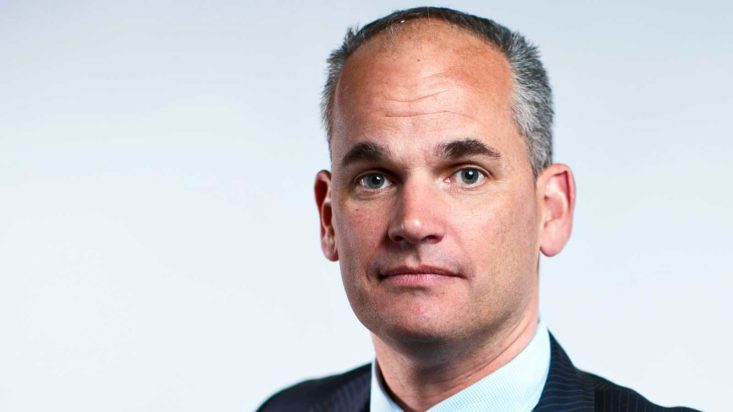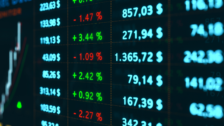Outlook for global growth shares ‘better than ever’
Munro Partners and its chief investment officer, Nick Griffin, seem to have a unique ability to look beyond the day-to-day noise that occurs in financial markets and frame the opportunity for global growth equities in seemingly simple terms. Since starting from scratch at $0 in assets in 2016 the group recently surpassed $1 billion in assets under management in Australia and $4 billion globally; a testament to this success.
Speaking at the recent June Quarterly update, Griffin flagged that the “three-to-five-year opportunities” available to those seeking to invest in global growth equities are “better than ever.” Fresh off a 24.2% return for the 2020-21 financial year and 17.0% a year since inception, the manager is doubling down on the key “areas of interest” following one of the strongest US earnings seasons Griffin has seen in his career.
Griffin described Munro Partners as “your global growth manager,” and while respectful of the “value approach” to investment, highlights that it is “simply a ‘trade’.” While there is little doubt that cyclicals and commodities companies may see a 12-to-18-month period of outperformance, he suggests you will still be owning “the same boring bank or oil company” after this happens.
His preference of course, is owning the “leaders of tomorrow” in the fastest-growing parts of the economy, and that’s where he describes the opportunities as being “better than ever.”
Naturally, with the S&P/ASX 200, S&P, Nasdaq, and Dow Jones seemingly hitting all-time highs every other day, there is a constant question around valuations. While markets may appear overvalued in absolute terms compared to other points in history, investors do not operate in the same market they did a decade ago. He highlights the fact that “every investor has a choice” of where to invest their money, hence equity markets should be valued compared to these alternatives.
The most powerful, of course ,is the 10-year US Government Bond rate, compared to which US equities are actually trading broadly in line with their average over the last twenty years. How is this possible? The major difference is that in the early 2000s interest rates were in the 6s and 7s but today, they start with a 1.
By no means does Griffin suggest there aren’t bubbles occurring; in fact, he welcomes the events of 2020 when it comes to the likes of Nio (NYSE: NIO), GameStop (NYSE: GME), and AMC Entertainment (NYSE: AMC). In his view, these companies are “tiny” and being driven by newer retail investors, who will learn lessons through this experience. These bubbles are seen to be good for markets and unlikely to impact sentiment more broadly.
Expanding on valuations, he highlights the growing opportunity set in core holdings such as Microsoft (NYSE:MSFT) which trades on what appears to be an expensive multiple of 28 times earnings in traditional terms, but is growing at 15% a year and offers a 2% dividend yield.
The holding forms part of the group’s “digital enterprise area of interest,” which represents 15% of the fund and is a 5.5% holding on its own. Another core holding within this sector is Australian success story Atlassian (NASDAQ: TEAM), which is supporting the continued shift of businesses online and the evolution of project management and communication.
The digital enterprise area is beaten by “climate” in terms of exposure, with this area of interest attracting 17% of the portfolio today, with wind turbine producer Orsted (CPH: ORSTED) the largest holding. He notes that when global behemoth Taiwan Semiconductor Industries (TPE:2330) needs to build a wind farm, it calls Orsted. The company is no different from BP (NYSE: BP) “running around Iran” back in the 1990s in its potential global importance.
Commenting on the recent events in China, he notes that the find has sold down and actually removed its exposure to Alibaba (NYSE: BABA), completely noting that China “is a bit different” when it comes to regulation. While Munro continues to see strong growth for the company, it believes the prudent move in the short term is to avoid the big tech names in the region.
This prudence held the fund in good stead in 2020, despite the fact that Griffin under-estimated the potential impact of COVID-19. The equity market losses of 13% in the March quarter of 2020 were offset by a positive move in currency, but more importantly, by 6%-plus returns on the fund’s short book and put options put in place to protect from downside risk.
As it stands today, the fund continues to back-in the most powerful and fastest-growing businesses in the world, many of which were sold off despite massive earnings beats. Amazon (NASDAQ: AMZN), NVIDIA (NASDAQ: NVDA) and Alphabet (NASDAQ: GOOGL)are among the top five holdings, while the fund also maintains a position in Tesla (NASDAQ: TSLA), citing the massive opportunity set as the electrical vehicle market expands.
One of his highest-conviction ideas is in lesser-known battery manufacturer, Samsung SDI (KRX: 006400), which has a US$40 billion ($54 billion) valuation. The company specialises in a unique form of “container batteries” that can be placed just about anywhere and represents one of the only options as the move toward baseload renewable energy sources gains traction.
In a world where many of the most popular global equity strategies in the market are focused on harnessing momentum in the short-term, shifting between cyclical and growth on a daily basis, Munro’s long-term, focused approach continues to stand out.











